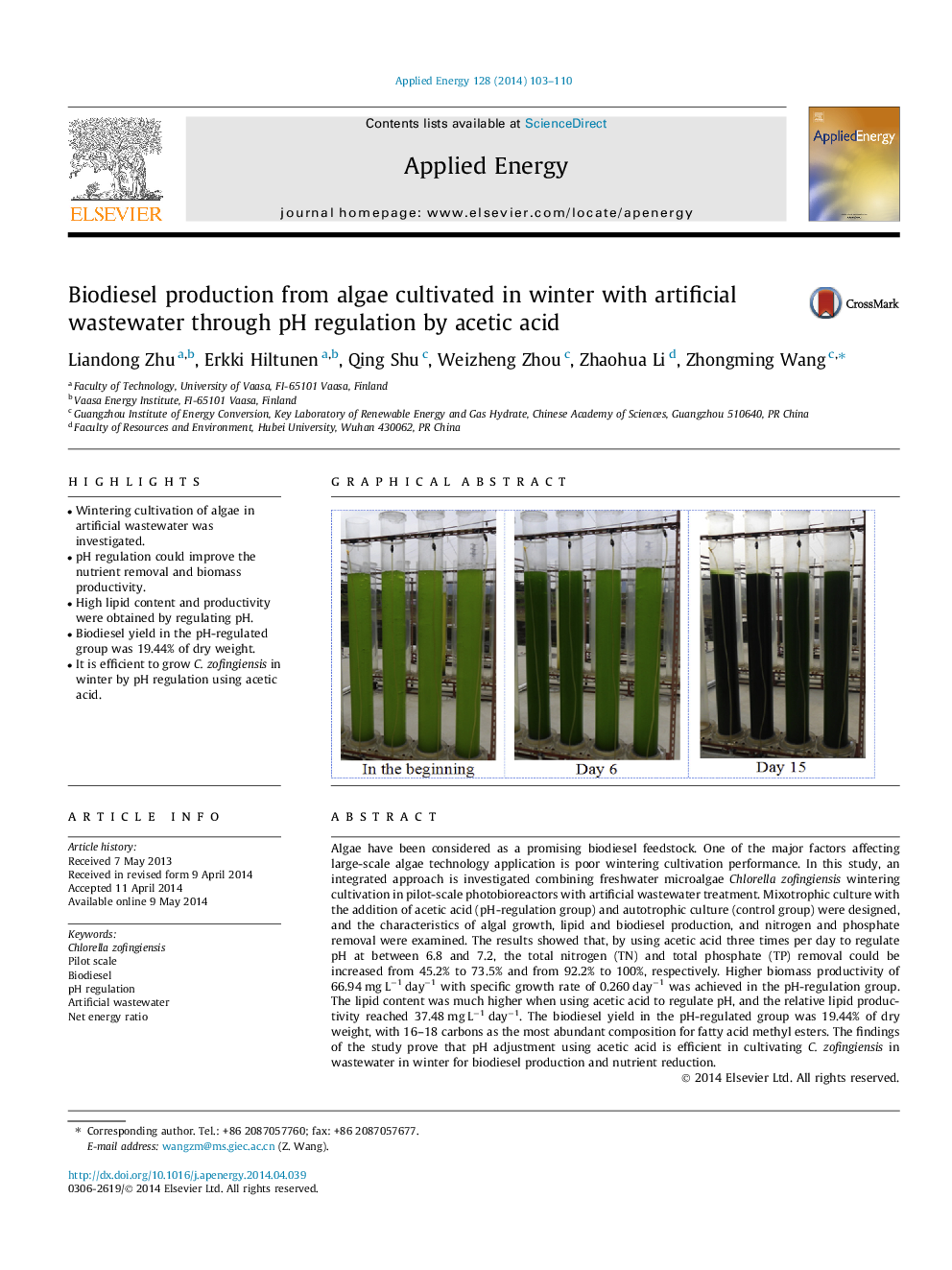| Article ID | Journal | Published Year | Pages | File Type |
|---|---|---|---|---|
| 242668 | Applied Energy | 2014 | 8 Pages |
•Wintering cultivation of algae in artificial wastewater was investigated.•pH regulation could improve the nutrient removal and biomass productivity.•High lipid content and productivity were obtained by regulating pH.•Biodiesel yield in the pH-regulated group was 19.44% of dry weight.•It is efficient to grow C. zofingiensis in winter by pH regulation using acetic acid.
Algae have been considered as a promising biodiesel feedstock. One of the major factors affecting large-scale algae technology application is poor wintering cultivation performance. In this study, an integrated approach is investigated combining freshwater microalgae Chlorella zofingiensis wintering cultivation in pilot-scale photobioreactors with artificial wastewater treatment. Mixotrophic culture with the addition of acetic acid (pH-regulation group) and autotrophic culture (control group) were designed, and the characteristics of algal growth, lipid and biodiesel production, and nitrogen and phosphate removal were examined. The results showed that, by using acetic acid three times per day to regulate pH at between 6.8 and 7.2, the total nitrogen (TN) and total phosphate (TP) removal could be increased from 45.2% to 73.5% and from 92.2% to 100%, respectively. Higher biomass productivity of 66.94 mg L−1 day−1 with specific growth rate of 0.260 day−1 was achieved in the pH-regulation group. The lipid content was much higher when using acetic acid to regulate pH, and the relative lipid productivity reached 37.48 mg L−1 day−1. The biodiesel yield in the pH-regulated group was 19.44% of dry weight, with 16–18 carbons as the most abundant composition for fatty acid methyl esters. The findings of the study prove that pH adjustment using acetic acid is efficient in cultivating C. zofingiensis in wastewater in winter for biodiesel production and nutrient reduction.
Graphical abstractFigure optionsDownload full-size imageDownload as PowerPoint slide
